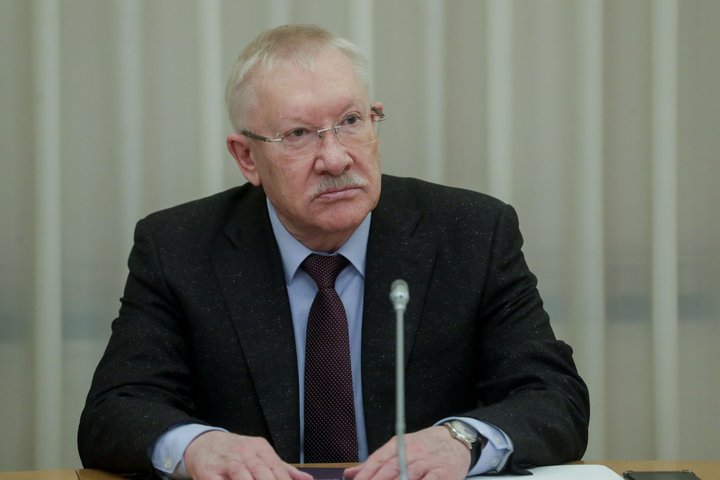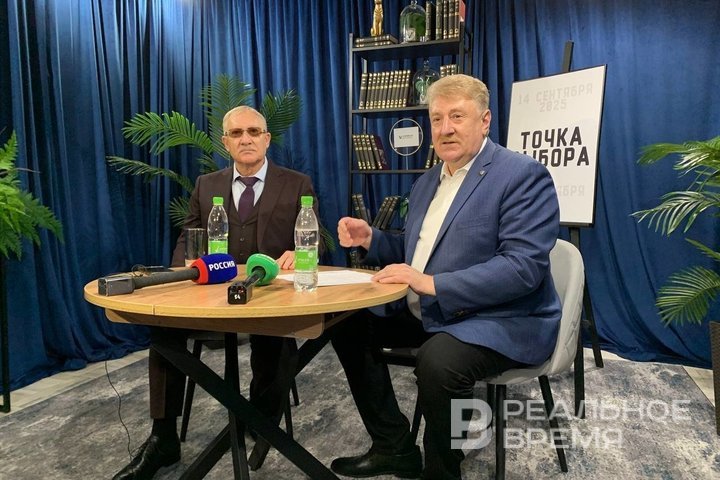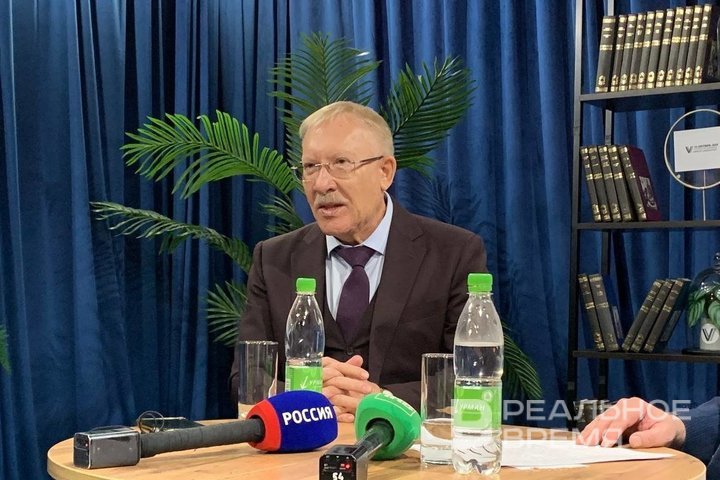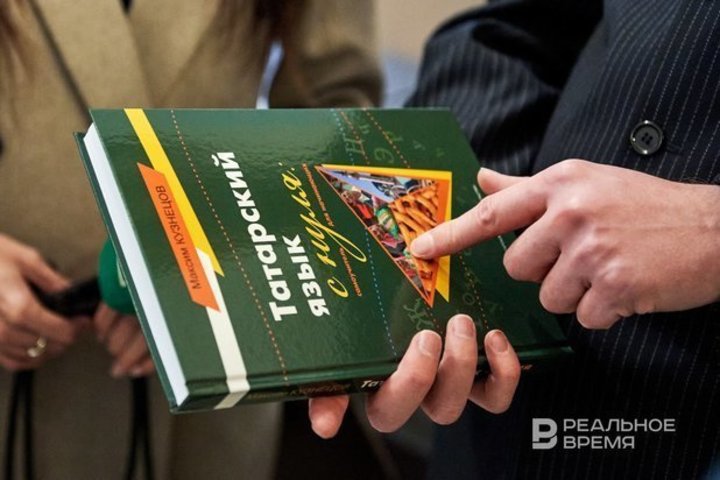Oleg Morozov: ‘Every region has a head, but for Tatarstan, the election carries special significance’
The head of the State Duma Committee on Oversight — on the role of the rais (head) for Russia and the federal protection of native languages

Less than two months remain until the single voting day in Tatarstan. On 14 September, voters will elect not only the rais but also municipal deputies — more than 6,000 candidates are competing for these positions. “These elections will determine what kind of republic we will have for the next five years,” stressed Oleg Morozov, chair of the State Duma Committee on Oversight, during a briefing at the Tochka Vyborainformation centre. More details — in Realnoe Vremya’s full report.
More than 6,000 seek municipal deputy posts
On 14 September, Tatarstan will hold its single voting day — residents of the republic will elect both the rais and municipal deputies. Four candidates are running for the position of rais: the incumbent Rustam Minnikhanov; Khafiz Mirgalimov, First Secretary of the Tatarstan branch of the Communist Party of the Russian Federation (CPRF); Ruslan Yusupov, coordinator of the Liberal Democratic Party of Russia (LDPR) in Tatarstan; and Vitaly Smirnov, Chairman of the regional branch of the Russian Party of Pensioners for Social Justice.
According to Andrey Kondratyev, chair of the Tatarstan Central Election Commission (CEC), the number of candidates for seats in representative bodies of local self-government has already exceeded 6,000.
“This is just the beginning. I believe interest and the number of candidates in this election campaign will continue to grow each day,” he said.
The overwhelming majority of candidates have been nominated by the United Russia — 3,400 in total. Another 1,400 are running as independents, while 573 represent the New People party. A Just Russia, the Liberal Democratic Party of Russia (LDPR), Communist Party of the Russian Federation (CPRF), Republican Public Movement TNV, Communist Party Communists of Russia, and Yablokohave collectively put forward 631 candidates.

“Talks that ‘my vote doesn’t matter’ are misleading”
Chair of the State Duma Committee on Oversight, Oleg Morozov, praised preparations for the upcoming elections in Tatarstan: “As far as I can see, this is the only platform in Russia where the regional Central Election Commission communicates with voters and young volunteers in such a near-daily format.”
“I’m not saying this to offer praise. If, while promoting the ideas of the electoral system, the rules of the electoral process, and the role of political parties, we don’t maintain constant dialogue with the people — with voters — we will lose the most important thing. Every person living in our country must understand that they have a tool for influencing power. All the talk that “I live on the sidelines,” “my vote doesn’t change anything,” or “let others decide for me” — that’s all misleading. The more people are engaged in this process, the higher the level of trust in government,” the speaker stressed.
The elections for the head of the region carry special significance for Tatarstan, he emphasised.
“From the very first day in the history of modern Russia, the position of the first president of the Republic of Tatarstan, Mintimer Sharipovich Shaimiev — his opinions and his work at the federal level — have always played a key role in shaping the republic’s standing within the Russian Federation,” said the head of the State Duma Committee. “Today’s Russia, in many ways, has become what it is thanks to Tatarstan’s initial position.”

According to him, Tatarstan has not lost this role.
“The speech of a single regional leader changed the position of the entire country,” Morozov recalled, referring to the republic’s defence of the two-tier local self-governance system. “This proves that the role of a leader like the rais differs somewhat, let’s say, from the role of leaders in other regions — with no offence intended. For the past 30 years of modern Russian history, Tatarstan has consistently and confidently raised questions that are vital both for the republic itself and for the country as a whole. And in many cases, its position has been heard. Hence the significance and influence of Tatarstan’s leader. The rais election is about deciding what kind of republic we want to see over the next five years.”
Approximately 2.9 million people will be eligible to vote — that was the number of registered voters in the region as of 1 July. Around 40,000 Tatarstan residents will be casting their votes for the first time this September. To them, the head of the State Duma Committee advised:“Be sure to come, experience everything yourselves, walk through it, see it with your own eyes, and cast your vote.”
State Duma to defend native languages
Before the briefing, Oleg Morozov attended a meeting with the government of Tatarstan. Journalists asked whether Rustam Minnikhanov had raised the issue of proposed amendments to the Federal State Educational Standards (FSES) concerning the renaming of native languages. The day before, the document had sparked intense debate during a session of the State Council of Tatarstan. “He did, he did,” nodded the Chair of the State Duma Committee on Oversight. He added that Farid Mukhametshin, chairman of the State Council, had instructed Tatarstan’s State Duma deputies “to look deeper into the issue and convey the republic’s position to the drafters — a position that currently includes a number of objections to the bill, both regarding its ideology and specific provisions.”

“There is a very sound principle in politics that must be followed — do not create tension where none initially exists,” Oleg Morozov emphasised. “Tension is artificially generated when an initiative emerges that is not fully thought through or carefully calibrated.”
He noted that the proposal has not yet acquired the status of a bill under discussion in the State Duma. “This is a draft currently undergoing expert review. And indeed, there are many concerns regarding the use of the term “native language” and what should be considered as such,” the speaker acknowledged.
According to him, it is now important to examine the document “calmly, without exaltation or hysteria,” to convey Tatarstan’s position, and “adjust the approach before it becomes federal law.”